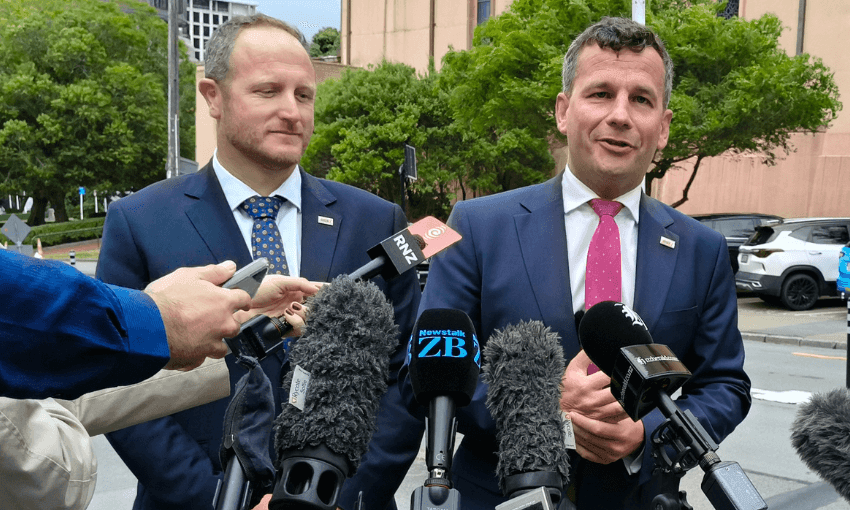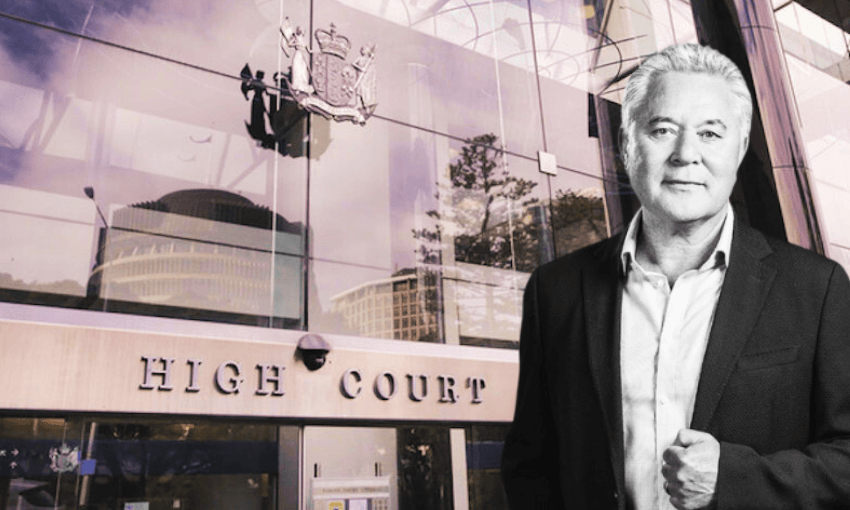In a long overdue move, Act will become New Zealand’s first modern rightwing party to run candidates in council elections.
David Seymour announced on Tuesday that the Act Party will stand council candidates in the October local body election. The party has opened expressions of interest in all council districts but doesn’t intend to endorse mayoral candidates or anyone running in a Māori ward.
It marks the first time Act – or any modern right-wing party – has waded into the murky world of local politics. Labour, the Greens and Te Pāti Māori all have active local arms, but Act, National and NZ First have traditionally shied away from council tables. In some regions, the void on the centre-right has been filled by proxy groups like Auckland’s Communities and Residents and the now-defunct Wellington Citizens’ Association.
Parties are wary of local politics because it has a way of attracting the obsessive and bizarre. It’s hard enough to vet candidates for the general election, but when you stoop down to local-government level you’ll find people with digital footprints that would make Steve Bannon blush. Party leaders don’t want to risk being associated with the likes of Invercargill mayor Nobby Clark, who supported Act during the 2023 election. If he had run for mayor under the Act banner, Seymour would have been hounded with questions about why one of his party’s candidates kept saying the N-word.
Given the risks involved, this is a bold move from a party that has teetered on the brink of irrelevancy and now finds itself larger and more secure than ever. Many of Act’s core principles translate easily to the world of local politics: cutting spending, reducing rates, ending Māori wards and co-governance of natural resources. Countless councillors and candidates share similar beliefs, even if they don’t put a party label on it. For the sake of voters, wouldn’t it be easier if they did?
Local government is confusing. There can be multiple layers of local boards, city, district and regional councils. The issues are complex, mired in bureaucracy, and usually only get surface-level media coverage. It’s not reasonable to expect voters to know all their local representatives’ names and political leanings. Come election time, they receive handbooks of candidate bios filled with generic buzzwords that mean nothing. Even with a close textual analysis, it’s often difficult to tell where candidates stand. A party affiliation or endorsement helps to address that. It’s a simple signifier of someone’s general values, even if it may not summarise their entire political philosophy.
There’s a myth that independent candidates are somehow more authentic and free of ideology. This narrative emerged because, up until now, only leftwing parties have stood local candidates, so attacking party-endorsed councillors became a simple shorthand for attacking the left. “Party politics should play no role in local government” some cry, while others go even further, suggesting that councils shouldn’t be political at all. This is nonsense, of course – councils are political organisations and every councillor is a politician with an ideology. At least Act Party candidates are honest about that.
Independent councillors are fond of implying that their party-endorsed colleagues are puppets for the wider party. This isn’t true. It’s not as if Chris Hipkins is breathing down Labour councillors’ necks every time they vote. Candidates sign up to a statement of values, but they’re free to make their own decisions. Look at one of the most contentious votes in Wellington City Council this term, the proposal to sell the council’s stake in the airport. Both Labour and the Greens generally oppose asset sales on a party level, but when it came to the vote, neither party voted as a bloc. Individual councillors decided for themselves.
Party endorsements can be a tool to hold people accountable. Members can call out their representatives when they feel they have gone against the values they promised to uphold and if it’s serious enough, they can refuse to re-endorse them next election. In 2022, the Wellington arm of the Green Party booted long-serving councillor Iona Pannett because she supported heritage and character areas over high-density housing. Sarah Free, another former Green, jumped before she was pushed – she caused controversies for voting against the wide-scale cycleway rollout, though she eventually flipped her vote. Both Free and Pannett won re-election as independent candidates, showing that party affiliation isn’t everything.
Finally, there’s the issue of equity and accessibility. Running for office as an individual is difficult, scary and expensive. Party machinery can support new candidates with mentorship and advice, help with fundraising and coordinating volunteers, and offer camaraderie in a world where it is often lacking. Act and every other party have an important role to play in encouraging and supporting talented new candidates for office.
Due to an increase in comments violating our community guidelines, we have defaulted to closing comments on political columns for the time being.


